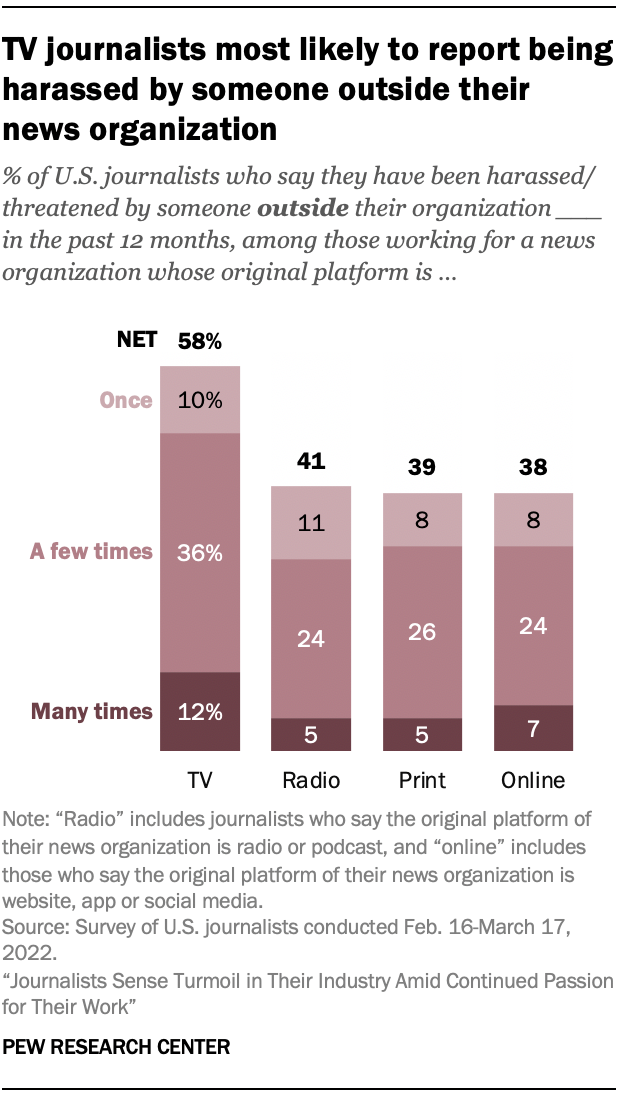
Journalists surveyed were asked to give the original platform of the news organization they work for (or the organization they work for most). This study compares the experiences and attitudes of journalists across four broader platform groups: print, television, radio and podcasts, and online, including websites, apps and social media sites. (See Appendix for a detailed breakdown of the sample by the original platform of the organizations respondents work for.)
In some ways, journalists’ experiences and opinions are similar for all platforms studied. But differences do show up – with the views of journalists working in legacy television news often the ones that stand out.
For instance, solid majorities of journalists in all platform groups express satisfaction with their jobs, but there are some consistent differences – mainly between television journalists and those in the other three groups. TV journalists are the least likely to say they are very or somewhat satisfied with their jobs (61%, vs. 70% or more of print, radio/podcast and online journalists). The same modest differences apply to how excited journalists feel about their work.
In another area, the gap is larger. About one-third of television journalists (34%) say their job has a very or somewhat positive impact on their emotional well-being. Journalists who work online (54%) and in print (52%) are far more likely to say this of their work.
Television journalists’ responses regarding their job’s impact on their emotional well-being may be connected to job-related harassment or threats that come from outside their newsroom. One-in-five TV journalists cite such harassment as a major problem, about twice the share of any other platform group. And about a quarter of TV journalists (24%) say harassment from someone outside their organization is not a problem, far lower than print (44%), radio and podcast (47%), and online (49%) journalists.
Given their conspicuous presence at events they cover (often accompanied by large cameras), it may not be surprising that 58% of television journalists say they have experienced job-related harassment from someone outside their news organization at least once in the past year. That’s considerably higher than the roughly four-in-ten among print (39%), online (38%) and radio (41%) journalists who say this has happened to them in the past year.
Online journalists most likely to say their organization is expanding
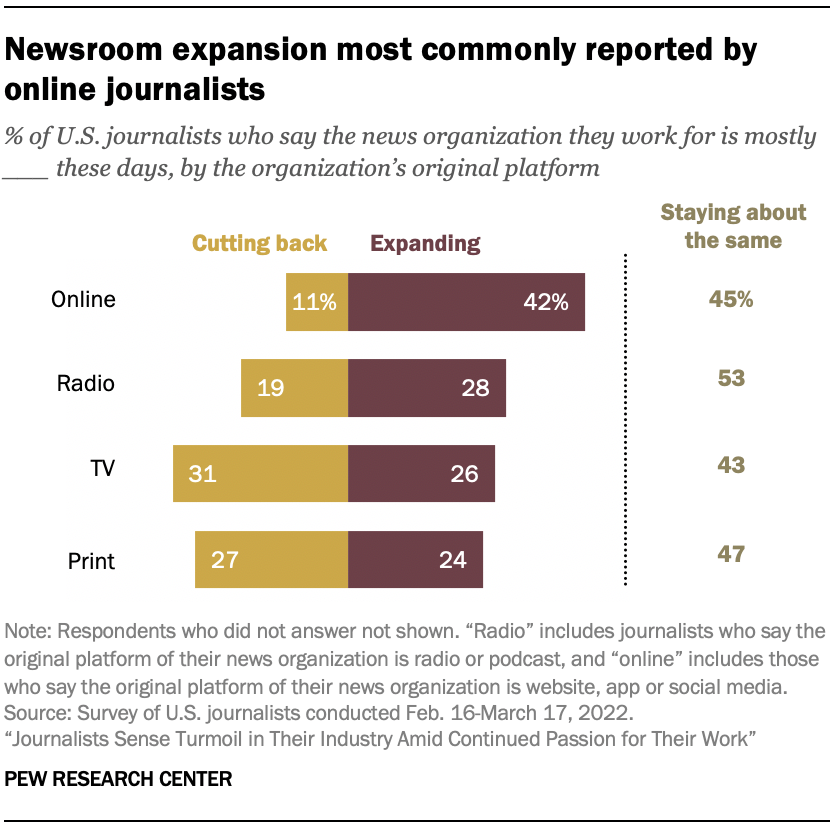
Journalists working for online news organizations are the most likely to say their organization is mostly expanding these days – 42%, compared with 11% who say it is cutting back (45% say it is staying about the same). Across the other three platform groups, only about one-quarter say their organization is expanding.
This finding is in line with previous Pew Research Center data that shows that while newsroom employment overall has dropped in recent years, particularly among newspapers, there have been considerable gains among digital-native outlets.
At the same time, about half of TV journalists (49%) say they received a salary increase in the past year. This was the case for 43% of online journalists, 38% of those working in radio or podcasts, and 36% of print journalists.
TV journalists most likely to want a license requirement
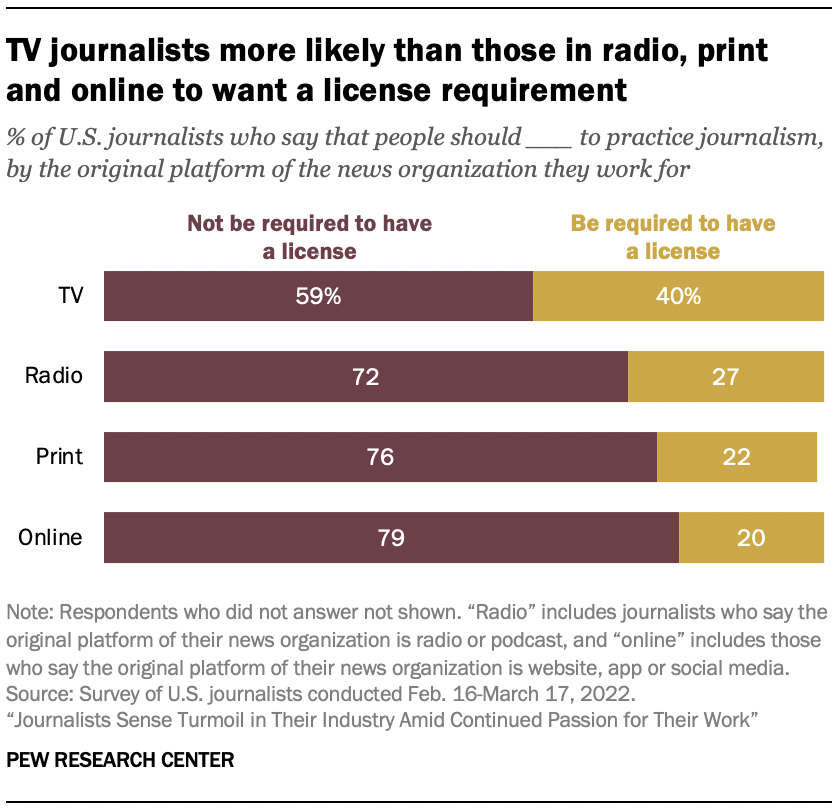
Majorities of journalists across platform groups say people should not be required to have a license in order to practice journalism. Television journalists are notably more likely than others to say a license should be required to practice journalism. In all, 40% of TV journalists surveyed favor a licensing requirement, about twice as many as online (20%) and print (22%) journalists. Those working in radio and podcasting fall in between, with 27% favoring a license.
It is worth noting that while there is no current licensing requirement for journalists themselves, radio and television stations are licensed and regulated by the Federal Communications Commission; there is no such regulatory authority for newspapers or online outlets.
Radio and podcast journalists feel most connected to their audience
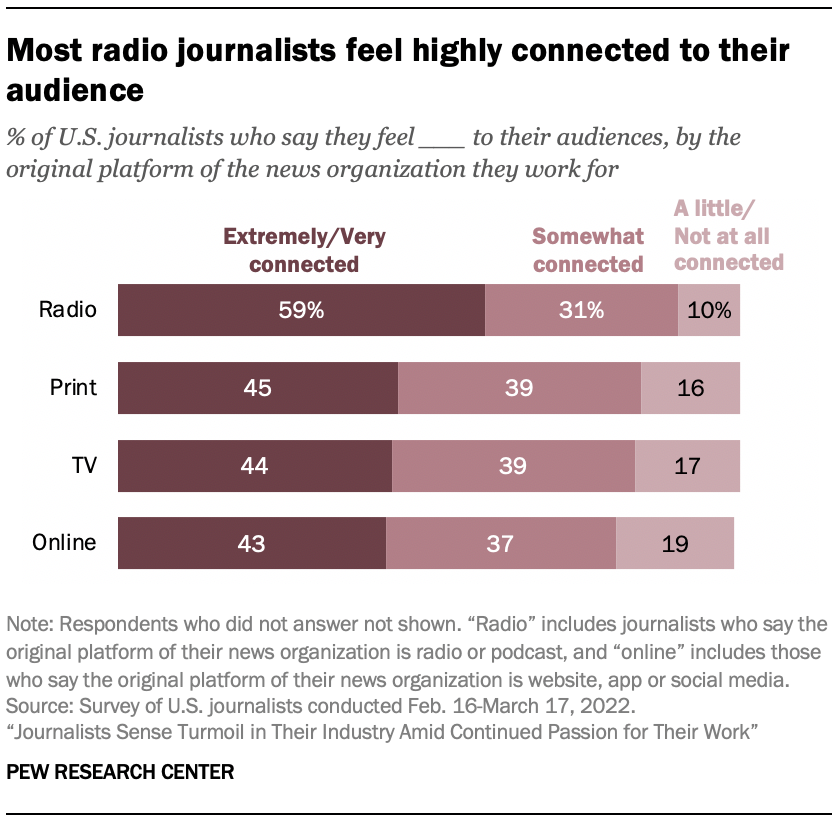
On the question of how connected journalists feel to their audiences, those working at organizations that originally started as radio or podcasts stand out. About six-in-ten (59%) say they feel extremely or very connected to their listeners – significantly higher than the 45% of print journalists, 44% of TV journalists and 43% of online journalists who say the same about their readers and viewers.
In a related finding, just under half of both radio and television journalists (44% and 46%, respectively) say they interact with the public at least once a day about their work or the work of their organization, higher than the roughly one-third of print (34%) and online journalists (35%) who report such interactions.
TV journalists are more likely to say their newsroom is diverse – and to take part in diversity trainings
In a number of ways, television journalists are more likely than journalists on other platforms to say their organizations are diverse enough. For instance, nearly half of TV journalists (47%) say their organization has enough racial and ethnic diversity, higher than the share of radio/podcast (34%), online (34%) and print (25%) journalists who say the same. TV journalists also are more likely than any other group to say their organization has enough diversity based on gender and sexual orientation.
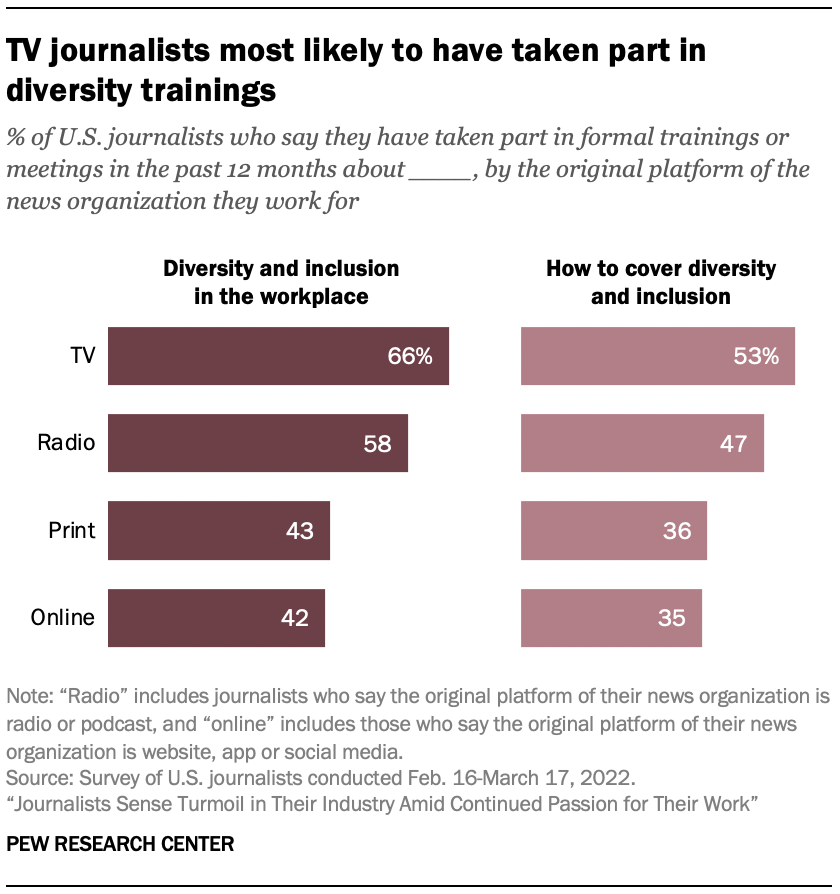
Similarly, television journalists are the most likely to say they have taken trainings on issues of diversity and inclusion. About two-thirds of TV journalists (66%) say they have had formal trainings or meetings about issues of diversity and inclusion in the workplace in the past year, far higher than the share of print (43%) and online (42%) journalists who report having these experiences. It follows, then, that TV journalists are the most likely of any platform group to say that their news organizations make diversity a major priority (51%).


 What do journalists think the news industry does best and worst?
What do journalists think the news industry does best and worst?